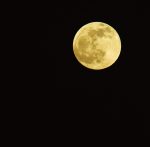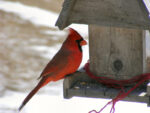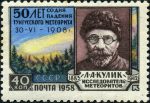![[Einstein Stamp]](https://riverhouses.org/wp-content/uploads/2019/05/einstein-1979-stamp-190x300.jpg) Today is the birthday of Albert Einstein (1879–1955)! It’s also Pi Day (3/14), so there couldn’t be a better day than this to connect your homeschool to a long-running “citizen science” project that is searching for pulsars in deep space. It’s a project that you and your students (yes, you) can join and contribute to in just a few minutes. Really!
Today is the birthday of Albert Einstein (1879–1955)! It’s also Pi Day (3/14), so there couldn’t be a better day than this to connect your homeschool to a long-running “citizen science” project that is searching for pulsars in deep space. It’s a project that you and your students (yes, you) can join and contribute to in just a few minutes. Really!
The project is called Einstein@Home (einsteinathome.org) and it’s sponsored by the University of Wisconsin, the U.S. National Science Foundation, and many other scientific organizations. I have participated for years, and you can too from the comfort of your home academy with just a few minutes of set up.
Einstein@Home uses idle time on your computer to search through data collected by radio telescopes — data that may contain weak signals from pulsars and other deep space objects. All you have to do is download a small application to your computer that runs in the background, and while you’re working or napping or eating or reading, it will be sorting through thousands and thousands of recorded signals. To participate using your computer (desktop or laptop), just go to the “Join Now” page and follow the instructions:
The application you download is called BOINC, the Berkeley Open Infrastructure for Network Computing, and it was developed at the University of California to support “distributed computing” projects like Einstein@Home that run independently on many different computers. (There’s also an Android version that will work on your phone, but I haven’t tried that one so you’ll have to experiment for yourself.) Once you download and install the BOINC application, just select Einstein@Home from among the available projects, and you’ll be up and running.
![[Einstein@Home Logo]](https://riverhouses.org/wp-content/uploads/2019/03/einstein-at-home.png) Einstein@Home isn’t an interactive project that requires you to perform any special tasks beyond the set up, so don’t worry that you have to understand advanced physics or astronomy to participate — you don’t! The program just runs in the background doing calculations, and so in a sense it’s a relatively passive activity overall. But your students can learn a great deal by reading about the project and understanding what kinds of data are being analyzed and where they come from. There are also discussion boards for participants on the Einstein@Home website. And by joining, you can just feel good about the way your homeschool is making its own small contribution to the advancement of science. 😊
Einstein@Home isn’t an interactive project that requires you to perform any special tasks beyond the set up, so don’t worry that you have to understand advanced physics or astronomy to participate — you don’t! The program just runs in the background doing calculations, and so in a sense it’s a relatively passive activity overall. But your students can learn a great deal by reading about the project and understanding what kinds of data are being analyzed and where they come from. There are also discussion boards for participants on the Einstein@Home website. And by joining, you can just feel good about the way your homeschool is making its own small contribution to the advancement of science. 😊
Once the application is up and running, Einstein@Home will produce a lovely screensaver when your computer is idle that shows a map of the heavens, the orientation of the terrestrial radio-signal detectors, and the point in space where the recording came from that your computer is currently analyzing.
![[Einstein@Home Screen Saver]](https://riverhouses.org/wp-content/uploads/2019/03/einstein-screen-saver-1024x640.png)
More that 500,000 volunteers (just like you and your students) have participated in the Einstein@Home project, and more than 40 new pulsars have thus far been discovered. In Albert’s honor, why not sign up this week!
And don’t feel like you’re working alone. I’ve created a placeholder page for a future River Houses homeschool team, and once you’ve got the program up and running you can add yourself there as well:
After you’ve been calculating for a while, you can even produce a handsome certificate of computation for yourself or your team that shows what you’ve accomplished — it’s just the thing for your homeschool bulletin board.
![[Certificate of Computation]](https://riverhouses.org/wp-content/uploads/2024/01/einstein-certificate-2024-01024-1024x745.png)
The Internet provides exceptional opportunities for homeschool students to participate in real projects in many different fields, something that would have been impossible only a few years ago. The specific examples above are just a few that happen to interest me — pay a visit to our Lunar Society page to read about many more projects that you and your family can join.
What celestial studies and splendid scientific investigations will you and your students be making in your homeschool this Leo Term? 😊
❡ Books in the running brooks: If you participate in Einstein@Home, our recommended homeschool reference library includes an excellent backyard night-sky guide, as well as a world atlas with a beautiful astronomical section, that will help you orient yourself to the objects you are studying in the starry vault above. 🔭
❡ Whether they work together or apart: This is one of our regular Lunar Society Bulletins about the many independent “citizen science” projects that we recommend to homeschool students. Add your name to our free weekly mailing list and get more great homeschool teaching ideas delivered right to your mailbox all through the year. 📫
❡ Homeschool calendars: We have a whole collection of free, printable, educational homeschool calendars and planners available on our main River Houses calendar page. They will help you create a light and easy structure for your homeschool year. Give them a try today! 🗓
❡ Support our work: If you enjoy our educational materials, please support us by starting your regular Amazon shopping from our very own homeschool teaching supplies page. When you click through from our page, any purchase you make earns us a small commission at no extra cost to you. Thank you for helping us to keep going and growing! 🛒
❡ Join us! The aim of the River Houses project is to create a network of friendly local homeschool support groups — local chapters that we call “Houses.” Our first at-large chapter, Headwaters House, is now forming and is open to homeschoolers everywhere. Find out how to become one of our founding members on the Headwaters House membership page. 🏡



